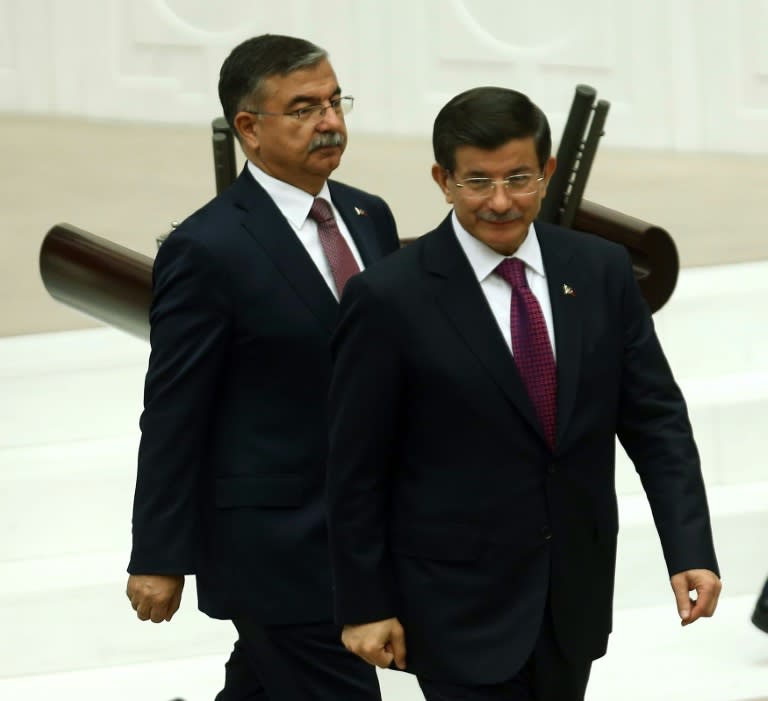Pro-Erdogan candidate voted Turkey's new parliament speaker
The defence minister from Turkish President Recep Tayyip Erdogan's ruling party was elected parliament speaker Wednesday in a vote seen as a key barometer of the country's politics after the party lost its majority in June elections. Ismet Yilmaz was elected speaker in the fourth round of voting with support from 258 deputies in the 550-seat parliament dominated by Justice and Development Party (AKP). Yilmaz, a relatively low-profile candidate, was running against Deniz Baykal, veteran former leader of the main opposition CHP Republican People's Party, who won 182 votes in the final round of voting. The Nationalist Movement Party's (MHP) candidate Ekmeleddin Ihsanoglu and pro-Kurdish People's Democratic Party's (HDP) candidate Dengir Mir Firat were eliminated in the third round of voting. The AKP has 258 seats in the parliament, CHP 132, and the Nationalist Movement Party (MHP) and pro-Kurdish People's Democratic Party (HDP) 80 apiece. Even though AKP are still by far the largest party, the June 7 election was a blow not only to its authority but also to Erdogan, who had been hoping the new parliament would agree on a new constitution to increase his powers. In his first remarks in parliament after being elected to the post, Yilmaz said the Turkish nation was expecting a new constitution from the 25th term of parliament he will preside over. "The economic and democratic level that our country has reached today makes a new constitution an obligation for all of us," he said. Yilmaz, who is a mechanical engineer with a PhD in maritime law, was elected to parliament for the first time in the June 2011 elections and had been serving as a defence minister since then. - 'Presented on golden platter' - The election of the speaker has been seen as a key weathervane of how the formation of Turkey's first coalition government since the AKP came to power in 2002 might pan out. The nomination of Yilmaz was also seen as a sign that the AKP could be willing to give up the post in return for a deal with the CHP to form a coalition. The results however put an end to such speculation as the two parties appeared not to have voted for each other. Some commentators said the results signalled the possibility of a coalition between the AKP and the MHP as the latter refused to vote for the opposition candidate. The AKP and the nationalist MHP share a core voter base of conservatives in the centre of the country. Baykal, 76, chaired the voting sessions on Tuesday and Wednesday as the oldest MP in the chamber. Therefore it was he who bitterly announced his own defeat following the secret ballots. Selahattin Demirtas, the co-chair of the HDP, said 50 deputies from his party voted for Baykal, and accused the MHP of "giving the post of speaker as a gift" to the AKP. Haluk Koc, the spokesman for the CHP, also accused MHP of covertly supporting the AKP and said: "The result has been presented to the AKP on a golden platter by the leader of a party (MHP). Erdogan is now expected to mandate Prime Minister Ahmet Davutoglu to form a government. If efforts to form a coalition are unsuccessful Erdogan can call snap elections within 45 days. According to recent opinion polls any new elections in October or November are unlikely to bring much change to the Turkish politics.




